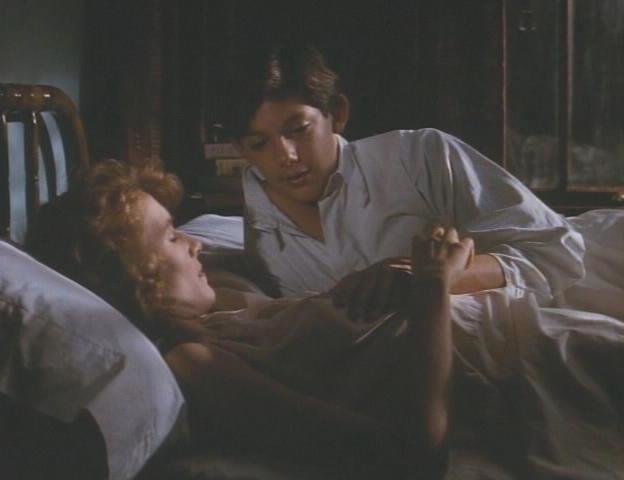“Rambling Rose” is a captivating film released in 1991 that tells the story of a young woman named Rose who brings chaos and unexpected changes to the lives of a Southern family. Set in the 1930s, the movie explores themes of love, desire, and societal expectations in a deeply moving and thought-provoking manner.
The plot unfolds as the Wetherby family, consisting of the strict and proper Mr. Wetherby, his understanding wife Mrs. Wetherby, and their teenage son Buddy, hires Rose as a live-in domestic helper. Rose’s free-spirited nature and uninhibited behavior disrupt the traditional dynamics of the household, leading to both humorous and poignant moments.

Laura Dern delivers a stellar performance as Rose, portraying her with a perfect blend of innocence and sensuality. Her interactions with the members of the Wetherby family, especially Buddy, showcase the complexities of human relationships and the awakening of desires.
Throughout the film, “Rambling Rose” delves into themes of sexuality and femininity, challenging the societal norms of the time. Rose’s unconventional behavior forces the characters to question their own beliefs and values, ultimately leading to personal growth and self-discovery.

Director Martha Coolidge masterfully captures the essence of the period, immersing the audience in the nostalgic charm of the 1930s South. The film’s cinematography and soundtrack enhance the overall experience, creating a sense of intimacy and authenticity.
As the story unfolds, viewers are taken on a journey of self-exploration and acceptance. “Rambling Rose” beautifully portrays the complexities of human nature and the power of love to transcend boundaries.
In conclusion, “Rambling Rose” is a timeless classic that resonates with audiences due to its compelling narrative, stellar performances, and evocative storytelling. The film serves as a reminder of the importance of embracing individuality and challenging societal norms in the pursuit of true happiness and fulfillment.